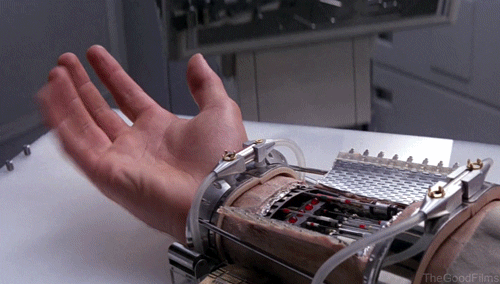Wednesday, 6 July 2022
Obsession
Thursday, 30 June 2022
The Bride
The Creature
No, that’s German -
Wednesday, 29 June 2022
Danny
He’s a LION,
A Lion is not greedy, but leaves off eating when he’s had enough for the day.
Saturday, 25 June 2022
WORD OF GOD :Anakin Has a Padawan
DAVE FILONI: The First Time George Lucas Talked About Ahsoka
DAVE FILONI: Ahsoka vs Vader Duel Breakdown
The Handless Maiden

JOSEPH CAMPBELL:
Well, I think that Star Wars is a valid mythological perspective.
It shows The State
as A Machine and asks:
Is The Machine going
to crush Humanity,
or Serve humanity?
And Humanity comes
not from The Machine,
but from The Heart.
(Clip from Star Wars)
VADER:
Luke. Help Me to
Take This Mask Off.
LUKE SKYWALKER:
But You’ll Die.
JOSEPH CAMPBELL:
I think it was
in The Return of the Jedi when
Skywalker unmasks His Father.
The father had been playing one of these Machine roles, a state role. He was the uniform, you know? And the removal of that mask, there was an undeveloped man there, there was a kind of a worm. By being executive of a system, one is not developing one’s humanity. I think that George Lucas really, really did a beautiful thing there.
BILL MOYERS:
The idea of machine is the idea that we want the world to be made in our image, and what we think the world ought to be.
JOSEPH CAMPBELL:
Well, the first time anybody made a tool, I mean, taking a stone and chipping it so that you can handle it, that’s the beginning of a machine. It’s turning outer nature into your service. But then there comes a time when it begins to dictate to you. I’m having a bit of struggle with my computer, actually.
BILL MOYERS:
Your computer?
JOSEPH CAMPBELL:
I just bought one a couple of months ago, and I can’t help thinking of it as having a personality there, because it talks back, and it behaves in a whimsical way, and all of that. So I’m personifying that machine. To me, that machine is almost alive. I could mythologize that damn thing.
BILL MOYERS:
There was a wonderful story about, I think, President Eisenhower, when the computer was first being built. You remember that story?
JOSEPH CAMPBELL:
Eisenhower went into a room full of computers, and he puts a question to these machines, “Is there a God?” And they all start up and there’s all those lights flashing and wheels turning and things like that, and after about 10 minutes of that kind of thing, a voice comes forth, and the voice says, “Now there is.”
Well, I bought this wonderful machine, IBM machine, and it’s there.
And I’m rather an authority on gods,
so I identified The God,
and it seems to me to be
An Old Testament God
with a lot of rules,
and no mercy.
BILL MOYERS:
It’s unforgiving, isn’t it.
JOSEPH CAMPBELL:
Catch you picking up sticks
on Saturday and you’re out,
that’s all….
BILL MOYERS:
But isn’t it possible to develop toward the computer, the computer you’re wrestling with at this very moment, isn’t it possible to develop the same kind of attitude of the Pawnee chieftain who said that in the legends of his people, all things speak of Tirawa, all things of speak of God.
It wasn’t a special privileged revelation,
God is everywhere
in His Works, including
The Computer.
JOSEPH CAMPBELL:
Well, indeed so. I mean, the miracle of what happens on that screen, you know, have you ever looked inside one of those things?
BILL MOYERS:
No.
JOSEPH CAMPBELL:
You can’t believe it. It’s a whole hierarchy of angels, all on slats, and those little tubes, those are miracles, those are miracles, they are.
BILL MOYERS:
One can feel a sense of awe.
JOSEPH CAMPBELL:
Well, I’ve had a revelation from my computer about mythology, though.
You buy a certain software, and there’s a whole set of signals that lead to the achievement of your aim, you know. And once you’ve set it for, let’s say, DW3, enter, if you begin fooling around with signals that belong to another system, they just won’t work, that’s all. You have a system there, a code, a determined code that requires you to use certain terms.
Now, similarly in mythology, each religion is a kind of software that has its own set of signals and will work. It’ll work. But suppose you’ve chosen this one. Now, if a person is really involved in a religion and really building his life on it, he’d better stay with the software that he’s got.
But a chap like myself,
who likes to play with —
BILL MOYERS:
Cross the wires?
JOSEPH CAMPBELL:
The various softwares, I can run around, but I probably will never have an experience comparable to that of a saint.
BILL MOYERS:
But do you think that The Machine is inventing new myths for us,
or that we with The Machine are inventing new myths?
JOSEPH CAMPBELL:
No. The myth has to incorporate
the machine.
BILL MOYERS:
A pagan deity?
JOSEPH CAMPBELL:
Just as the old myths incorporated the tools that people used, the forms of the tools and so forth are associated with power systems that are involved in the culture. We have not a mythology that incorporates these. The new powers are being, so to say, surprisingly announced to us by what the machines can do. We can’t have a mythology for a long, long time to come; things are changing too fast. The environment in which we’re living is changing too fast for it become mythologized.
BILL MOYERS:
How do we live without myths, then?
JOSEPH CAMPBELL:
Well, we’re doing it.
The individual has to find the aspect of myth that has to do with the conduct of his life.
There are a number of services that myths serve.
The basic one is opening the world to the dimension of mystery. If you lose that, you don’t have a mythology, to realize the mystery that underlies all forms.
But then there comes the cosmological aspect of myth, seeing that mystery as manifest through all things, so that the universe becomes as it were a holy picture, you are always addressed to the transcendent mystery through that.
But then there’s another function, and that’s the sociological one, of validating or maintaining a certain society. That is the side of the thing that has taken over in our world.
BILL MOYERS:
What do you mean?
JOSEPH CAMPBELL:
Ethical laws, the laws of life in the society, all of Yahweh’s pages and pages and pages of what kind of clothes to wear, how to behave to each other, and all that, do you see, in terms of the values of this particular society. But then there’s a fourth function of myth, and this is the one that I think today everyone must try to relate to, and that’s the pedagogical function.
How to live a human lifetime under any circumstances.
Myth can tell you that.
Uncle Walter
Sebastian Shaw
He has The Eyebrows

